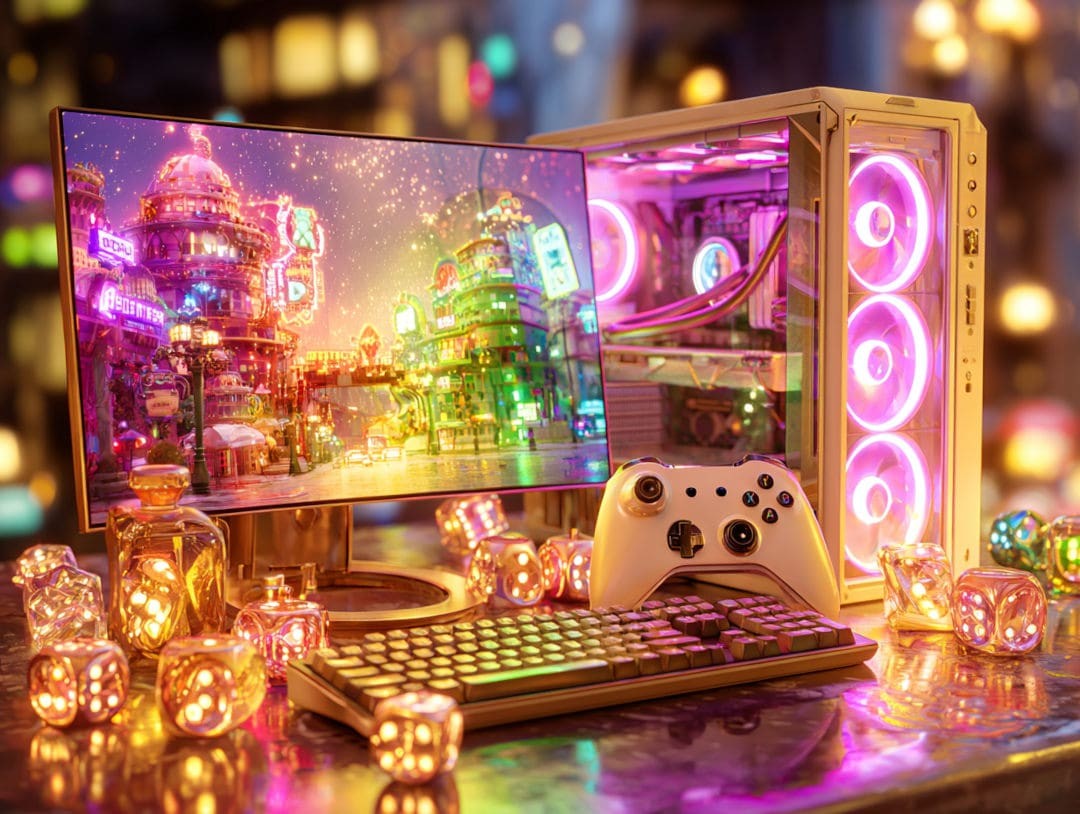
Plug In or Boot Up? A Beginner’s First Choice: Console or PC
The first step into gaming feels like standing at a fork in the road. On one side sits the console — tidy, friendly, and built to start instantly. On the other side, the PC — configurable, upgradable, and a little mysterious. He wants fun without friction, but also room to grow. Which option serves a newcomer’s schedule, wallet, and curiosity best?
In the second week of window-shopping, the beginner notices the real question is about habits. Will evenings be about quick sessions on the couch, or about tinkering between matches? He skims guides, peeks at livestreams, even reads takes on casino games to compare genre variety and input feel. The right answer isn’t universal — it’s a match between lifestyle and machine.
The Console Case: First Weekend Wins
-
Zero-to-Play Speed — Setup is short, updates are guided, and games are tuned for one hardware profile. He plays in minutes, not hours.
-
Couch-First Comfort — A living-room UI, simple party chat, and controllers designed for distance. The TV becomes the stage.
-
Predictable Performance — Developers target a fixed spec, so visual modes and frame pacing stay consistent. Less fiddling, more playing.
-
Clear Costs — One box, one controller, and online service. No rabbit hole of parts, drivers, or “which GPU this fall?” anxiety.
-
Family-Friendly — Shared profiles and parental controls that make sense out of the box — helpful when the household is mixed-age.
Between sessions he hears the PC calling. Not because consoles fall short, but because curiosity grows. He wonders whether frame rate headroom changes how shooters feel, whether strategy games bloom with a mouse, whether mods can stretch a favorite title for another year.
The PC Pitch: Choice As A Feature
The PC asks for patience up front and pays it back over time. Stores compete, sales stack, and back catalogs are deep. Indies arrive early. Genres like RTS, city builders, and MOBAs feel native on keyboard and mouse. If he writes, streams, or studies on the same desk, one machine starts doing triple duty.
Upgrades turn into a slow-burn hobby. A budget graphics card today, a better CPU next summer, a new SSD when load times drag — the rig grows with him. Peripherals become personal style: compact boards, silent switches, a light mouse that finally fits his hand. None of that is mandatory, but the door stays open.
He also learns the soft skills — drivers, temps, cables, and the art of not installing three overlays at once. It is less glamorous than a shiny trailer, yet it builds confidence. Troubleshooting stops being a crisis and becomes part of the craft.
Total Cost, Plainly Told
Sticker prices can mislead. A console looks cheaper, then subscription services add up — still good value if he plays frequently. A PC costs more up front, but seasonal sales and free weekends bend the curve. Monitors matter too: a 120–144 Hz screen can make motion feel cleaner than any settings menu ever will.
For long-term value, the question is usage. If the box is also for study, creative work, or light video editing, the PC earns its rent between games. If the living room is the social hub and the schedule is tight, the console’s convenience pays dividends every night.
Signs You’re Secretly A PC Beginner
-
You Like Tinkering — Swapping parts sounds fun, not scary. You’d rather learn than wait.
-
You Crave Niche Genres — You keep eyeing management sims, mod packs, and early-access experiments.
-
You Multitask — Gaming shares time with school, streams, or music production; one desk fits all.
-
You Notice Input Feel — You care about mice, key travel, and frame time graphs more than box art.
-
You Value Ownership Flex — Multiple stores, mods, and save tools appeal more than one walled garden.
And If You’re Console-First At Heart
He leans toward the console when the day is busy and the brain is done. Friends are already on the same platform. The plan is simple — pick a box, pick a couch, press play. Visual modes are a toggle, not a thesis. The library is curated; the friction is low. He gives up some mod freedom to gain a predictable, cozy loop.
A Beginner’s Verdict
For a newcomer who wants the smoothest first month, a console is the safer bet — fewer decisions, faster wins, and a living-room rhythm that keeps playtime light. For a newcomer who enjoys learning the gear and wants the ecosystem to grow with new tastes, a modest gaming PC is the better long game — flexible, upgradable, and endlessly customizable.
Both lanes are worth taking, and both can be affordable with measured buys. Pick the one that matches his evenings now, not his imagined self two years out. Start where fun happens soonest — and let curiosity, not FOMO, decide when to switch lanes.
Related Article Archives
Related Articles
Top Female Online Poker Players Making Waves in 2026
Posted Feb 13th, 2026
How to Choose a Reputable Online Casino
Posted Feb 14th, 2026
The Shift from RNG to Live Interactive Gaming Environments
Posted Feb 13th, 2026
Winna Casino Review What Players Should Know Before Signing Up
Posted Feb 17th, 2026
Thrill Seekers vs. Strategists: Which Casino Games Match Your Personality
Posted Feb 18th, 2026
Sweepstakes Casinos: Why Players Are Choosing Social Gaming in 2026
Posted Feb 18th, 2026
Disclosure: This article contains sponsored content.






